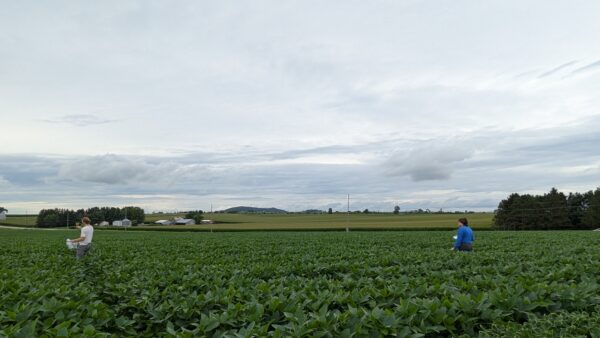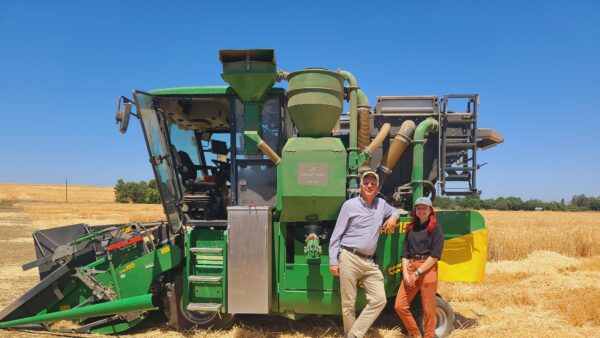Putting work on hold seems irresponsible, even after hours. But for mental health, there must be a balance between life and work.
After a long day at work, empoyees should be able to leave the office, head home and relax. But how many people actually go home and completely turn their work off in order to enjoy their home life?
Technology has been an enormous benefit on our world, the agriculture industry, in particular, has advanced in breeding techniques and farming equipment. But how has this technology affected an employee’s work life balance?
According to a 2012 survey by the Center for Creative Leadership, 60 percent of smartphone-using professionals kept in touch with work for a full 13.5 hours per day and spent five hours juggling their work email each weekend. Furthermore, 44 percent of working adults surveyed by the American Psychological Association said that they check work email daily while on vacation, and about 1 in 10 checked it hourly on vacation.
“It comes to no surprise that in the ‘always on’ culture in which we live, there is the workday, and then there is the after-workday,” says Liuba Belkin, associate professor of management at Lehigh University.
In a study entitled, “Exhausted, But Unable to Disconnect: The Impact of Email-Related Organizational Expectations on Work-Family Balance,” Belkin examined the relationship between mental health and answering emails while at home.
“Just knowing there is an organizational expectation that employees will respond to email outside normal business hours creates anticipatory stress that negatively affects their perception of work-family balance,” Belkin says. “Simply put, they cannot mentally disconnect from work.”
If employees fail to disconnect from work, their mental health can plummet. Stress will rise along with anxiety, and there’s even a possibility of depression occurring.
“Almost everyone understands that if you engage in vigorous exercise, you need time to rest and recuperate before exercising again,” Belkin says. “The same is true with emotional and cognitive resources. Research has shown that people are more productive, happier and
healthier when they are able to detach from work (both mentally and physically) and replenish. Failing to protect your emotional and cognitive resources eventually leads to burnout.”
The seed industry is no exception to this study.
Recently, Canada’s Do More Agriculture Foundation (Do More Ag) hosted a panel discussion about mental health in Alberta. Do More Ag focuses on creating awareness about mental health in agriculture and creating a community and foundation to let the industry and producers know that they are not alone.
According to Do More Ag, 35 percent of producers in Canada met the criteria for depression; 45 percent were classified as having high stress; and 58 percent met the criteria for having anxiety.
“We’re realizing as an industry that we are people. We aren’t these machines that keep going and going,” says Kim Keller, one of the four founders of Do More Ag. “As a farm, we need to run the most efficiently we can. How can we keep doing that if we ourselves are not working at peak performance?”
“You don’t want to hold it all in and have a blow up come harvest,” says Lesley Kelly, another founder of Do More Ag.
Keller says mental health is the biggest risk to the agriculture. Without a firm work-to-personal-life balance, mental health can plummet. Without strict office hours, employees might face a complete burnout from carrying the work stress throughout the day. Burnouts can manifest in different ways: an increase in slacking off, pent-up frustration releasing within the workplace or even an attempt to find a new job.
Belkin and Do More Ag echo the same solution: communication.
“In our global economy, I don’t believe it is feasible or possible for many businesses to completely cut off electronic communications outside regular working hours.” Belkin says. “But it is feasible, possible and necessary to set clear organizational expectations that free employees from emotional exhaustion and chronic stress.”
Do More Ag states on their website that, “Agriculture is an industry with a foundation of deep rural roots, hard work, resilience, strength and community. In order to uphold that image, those traits can also be the industry’s weakness as they become barriers for speaking up and seeking help.”
There’s nothing wrong with seeking help and discussing mental health and work-life balance with others, and there’s nothing wrong with asking for healthy disconnect hours.
“The single most important thing organizational leaders can do is let their employees know they care about them,” Belkin says. “You want them to spend time with family and friends to replenish their resources when they’re not working.”
“Words matter. Conversations matter,” Kelly says.










